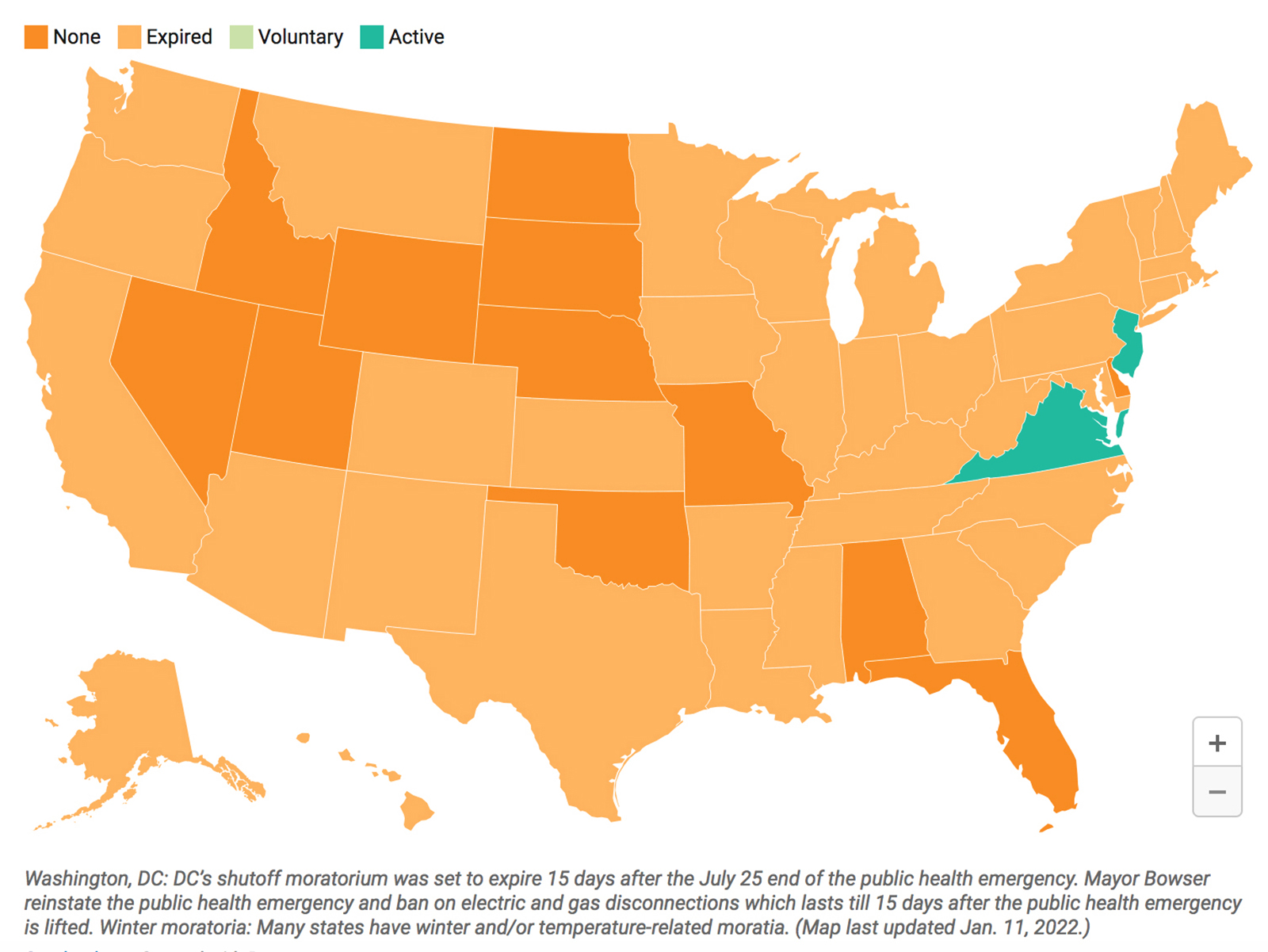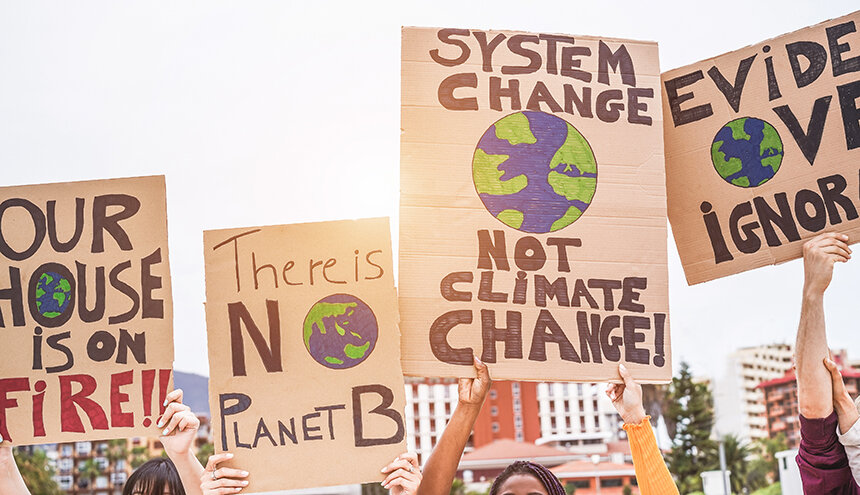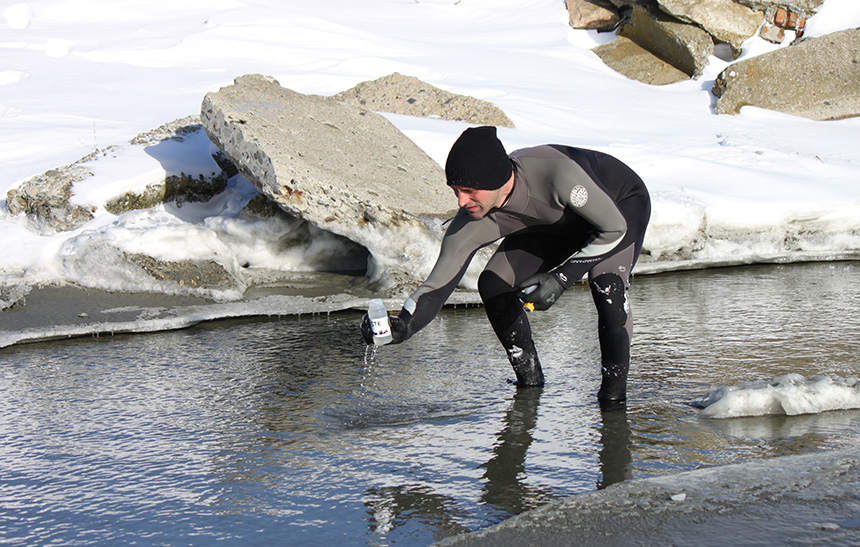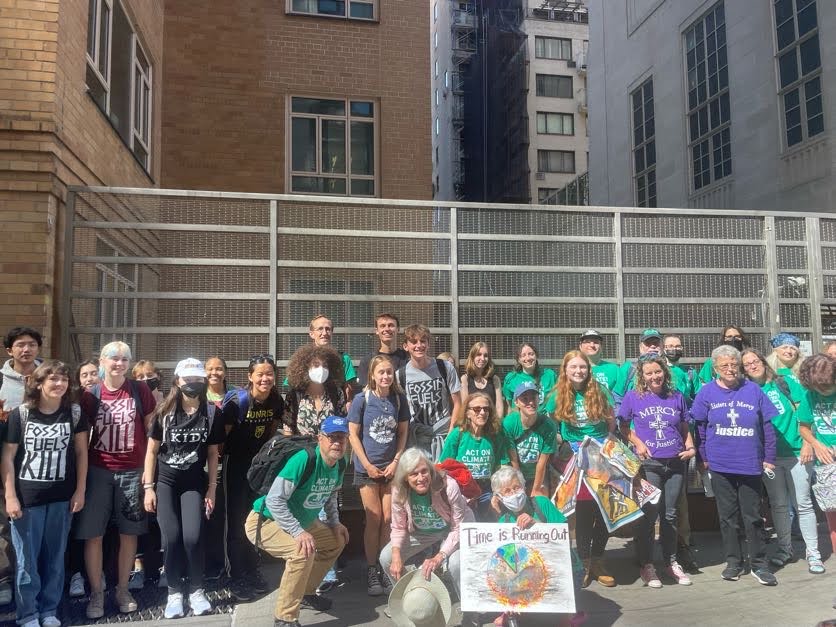Pandemic Revealed Importance of Keeping Everyone’s Lights and Heat On, Water Running
Utility shutoffs punish low-wealth families as those who are better off burn more energy in a time of crisis
July 31, 2022

Long before the coronavirus pandemic shed light on the chronic injustices embedded in the U.S. energy system, the George Wiley Center in Rhode Island was focused on utility justice.
Since 1981, the Pawtucket-based nonprofit has helped, among other initiatives, extend the state’s winter moratorium, offering more protection from utility shutoffs for vulnerable households during the coldest time of the year, and helped secure first-in-the-country protection from utility termination during heat waves.
During a March 29 forum sponsored by the Rhode Island Sierra Club, the George Wiley Center’s executive director, Camilo Viveiros, called utility shutoffs an environmental justice issue. He also called for Rhode Island to adopt a percentage income payment plan (PIPP) for low-wealth families, which would require Rhode Island Energy, formerly National Grid, to accept payments based on a percentage of a household’s income. He noted some Rhode Island families are paying an unsustainable 40% to 50% of their incomes on utilities.
In 1986, Rhode Island carried out a pilot PIPP program, and an evaluation of the program, by the Rhode Island Governor’s Office of Energy Assistance, found a significant number of households participating in the pilot actually increased their payments for monthly gas and electric bills. The pilot expired without a full program being implemented. A few states, such as California, Illinois, and Ohio, have PIPP programs in place.
As Rhode Island moves toward an economy powered by renewable energy, Viveiros said the state’s future utility systems need to be community-based, affordable for everyone, and sustainable for both people and the planet. The current system, he said, treats low-wealth families, people of color, and the environment unfairly.
“Our members take the bus, live in apartments,” he said. “We’re not the ones that are using a disproportionate amount of energy and destroying the earth.”
In Rhode Island, state law does provide some protections, thanks to the work of the George Wiley Center and other advocates:
From Nov. 1 to April 15 disconnections are prohibited for primary heating accounts with arrearages of less than $500, or other accounts with arrearages of less than $200. No disconnections for a protected status customer. The utility may not terminate any customer without filing an affidavit with the Division of Public Utilities and Carriers at least 48 hours before the scheduled disconnection.
No disconnections on days when there is a heat advisory or excessive heat warning in effect.
No disconnections on Fridays, weekends, legal holidays, days before legal holidays, or when the utility is not open to the public for regular business.

Before March 2020, millions of families nationwide often had their power shut off or were threatened that it would be, even during heat waves or cold snaps, because they couldn’t afford to pay their utility bills — an environmental justice problem that had long been largely ignored by elected officials and those in power.
In the year before COVID lockdown, from May to October 2019, about 19,000 Rhode Island households had their natural gas or electricity service terminated.
Since the pandemic began, however, 32 states, including in Rhode Island, and Washington, D.C., have enacted emergency orders temporarily halting shutoffs. Most, including Rhode Island’s, have since expired. A lack of compassion and justice has allowed past practices to return.
Even though moratoriums on shutoffs were enacted during the height of COVID, more than 1 million household electricity shutoffs occurred in 17 states, according to the Center for Biological Diversity’s Energy Justice Program.
Government action, though, helped financially struggling families stay in their homes and keep access to water, heat, and electricity during the pandemic and it also helped reduce the spread of the virus, according to a 2021 working paper authored by Duke University researchers.
Relief from utility disconnections and eviction moratoriums reduced COVID cases by 8.2% from the onset of the pandemic through the end of November 2020, the authors found. They also found that if such measures had been implemented nationwide on March 1, 2020, utility shutoff moratoriums would have cut infections by 8.7% and deaths by 14.8%.
A 2017 study done by the National Association for the Advancement of Colored People (NAACP) noted the adoption of utility disconnection policies acknowledges the problems faced by people who are vulnerable to having their heat, water, and electricity turned off.
“Unfortunately, the interests of these customers often compete with the interests of utility companies, regulators, and other utility customers,” according to the 80-page report. “This poses an obstacle to the design of appropriate disconnection policies that recognize the necessity of utility services and the rights of utility customers.”
The NAACP says the need to incorporate human rights into the utility business model is a key component of the larger reform of the country’s extractive energy economy and movement toward energy/environmental justice. It supports the elimination of utility disconnections, including water.
“The energy justice movement upholds that all individuals have the right to: safe, sustainable energy production; resilient and updated energy infrastructure; affordable energy; and uninterrupted energy service,” according to the NAACP.
George Wiley Center staffer Barbara Fleury also spoke in favor of a PIPP program for Rhode Island during the late-March environmental justice forum hosted by the Rhode Island Sierra Club.
“There are too many shutoffs currently going on in Rhode Island,” she said. “It’s so important that people who have low incomes … can still thrive. Without it, children catch colds, people get sick, there are emergency room visits, lives are interrupted. It’s so important that people have access to their utilities even when they are suffering monetarily.”
To view the series, click here.




We need to pass PIPP
I’ve always been doubtful about the “% of income” scheme considering fluctuating incomes difficult to verify, under-the-table work, and the lack of incentive for conservation it implies. Wouldn’t it be better to restructure the rates for everybody so that everyone gets some basic amount of electricity as a “lifeline” low rate, but use above that level has high costs – that would give everyone an ito conserve and everyone a basic amount of low cost electricity